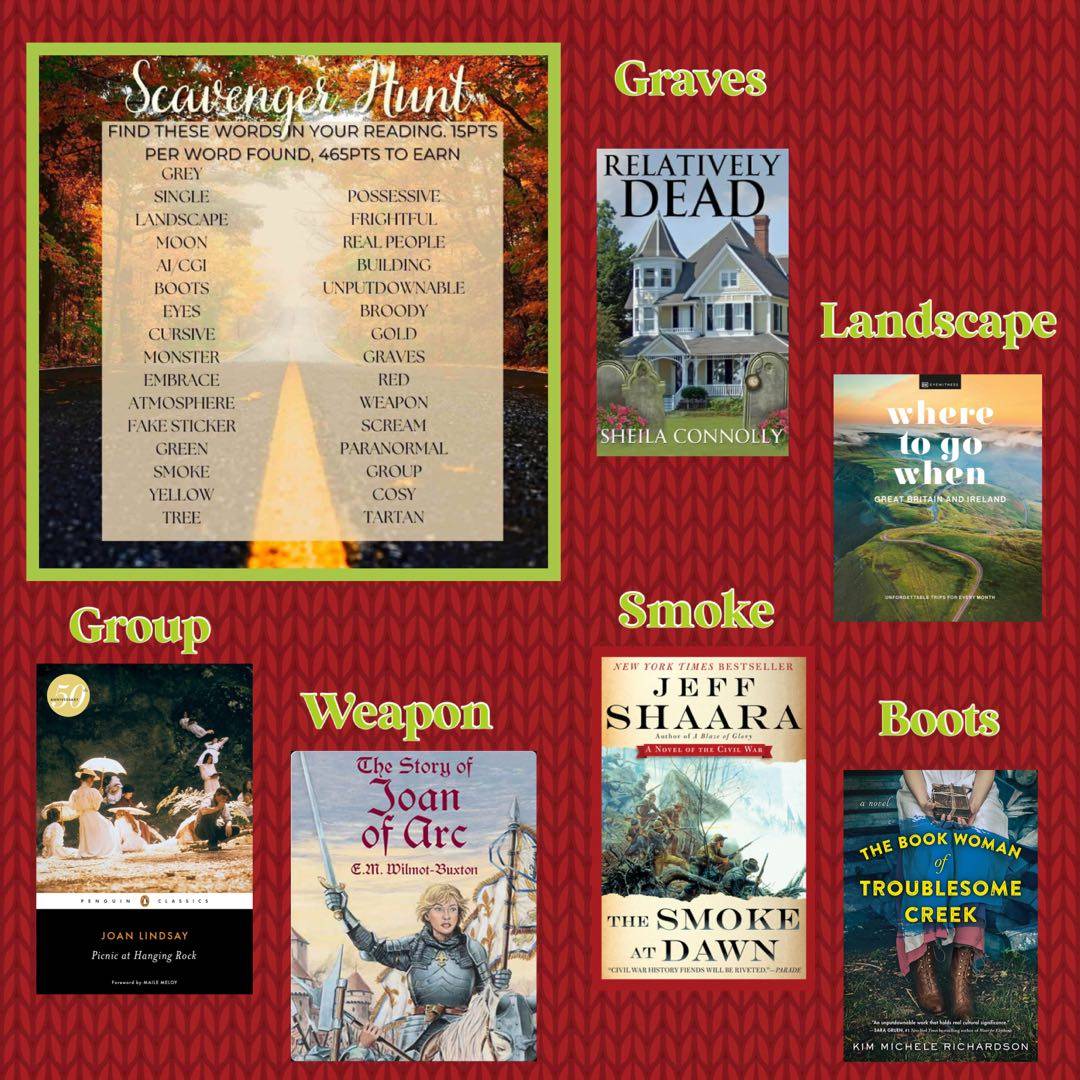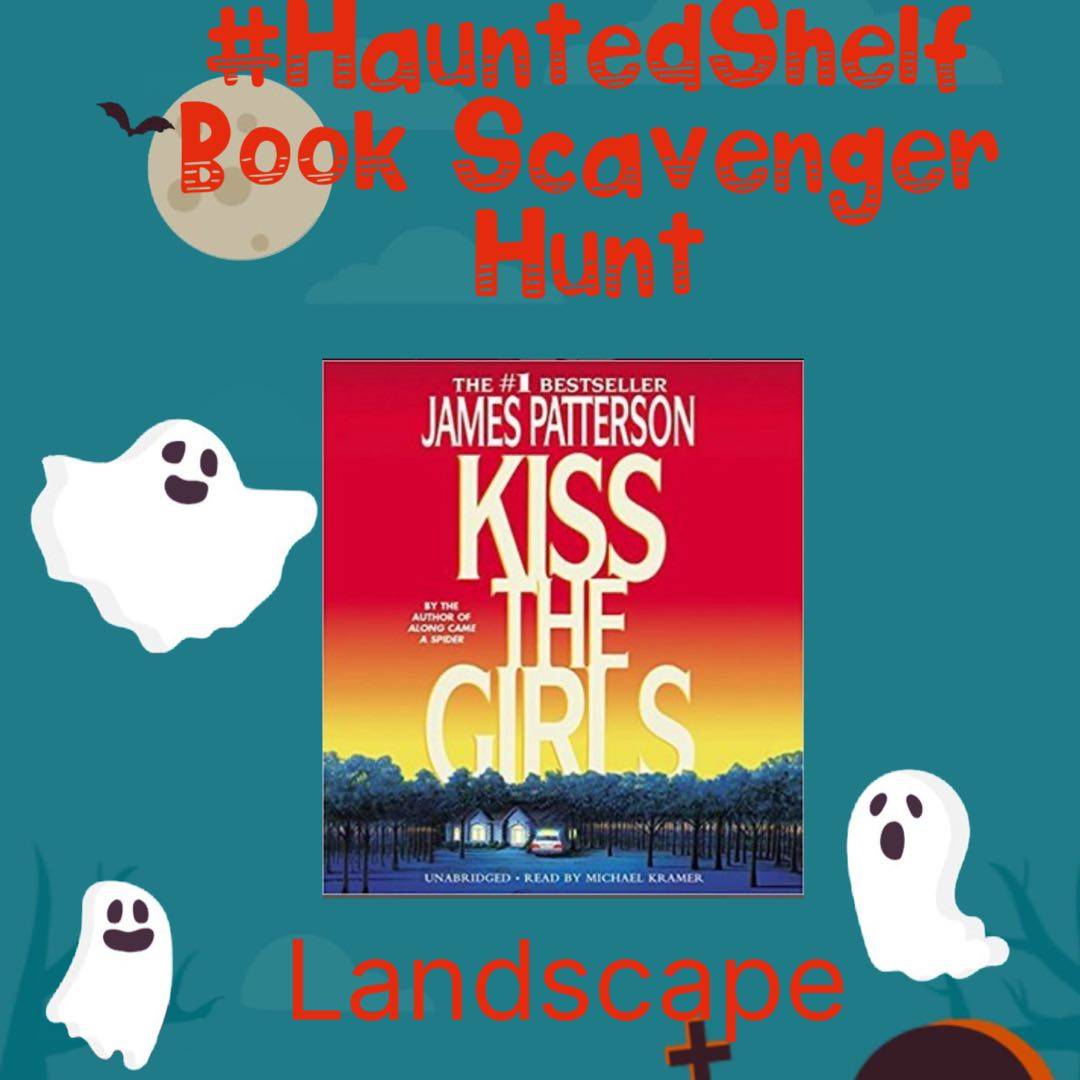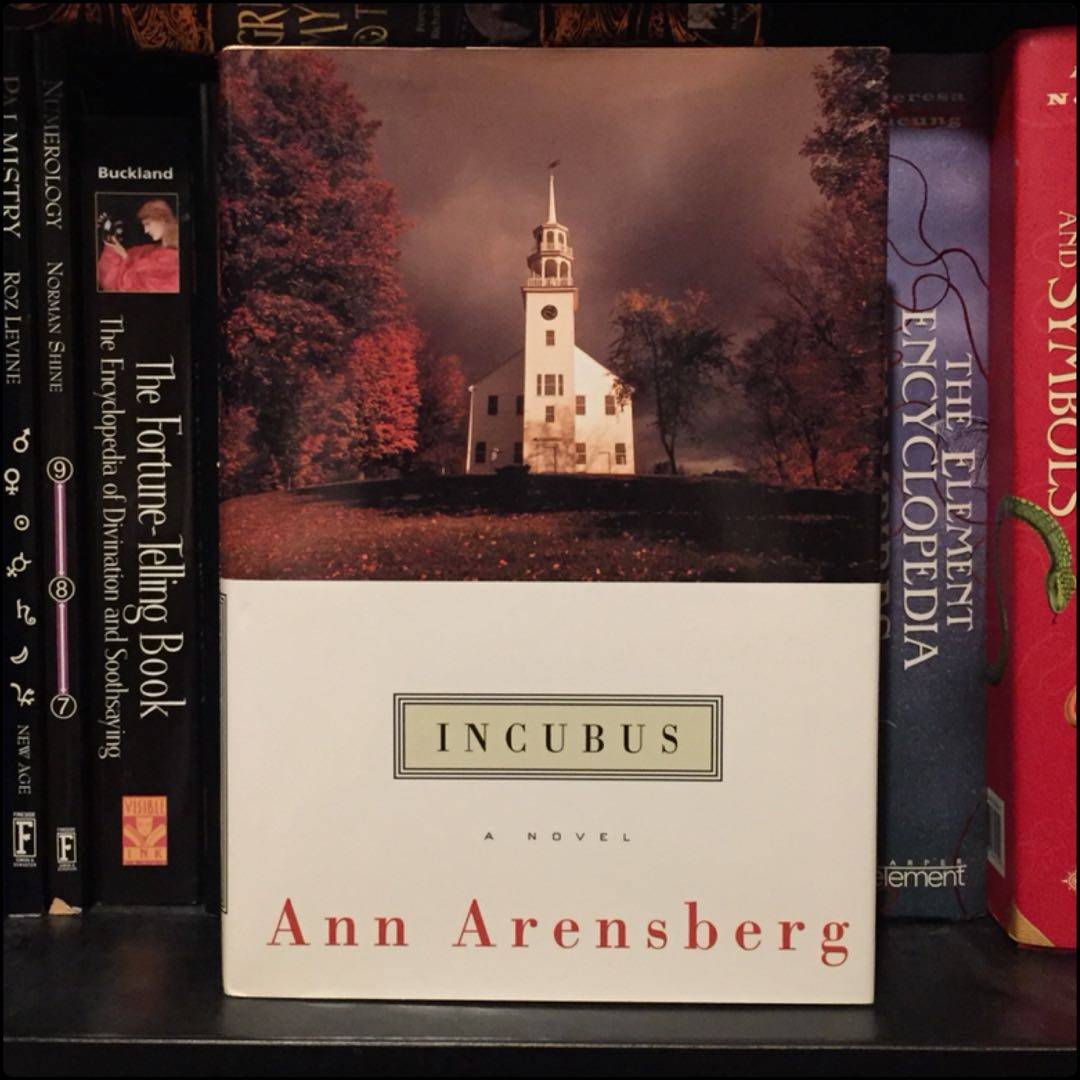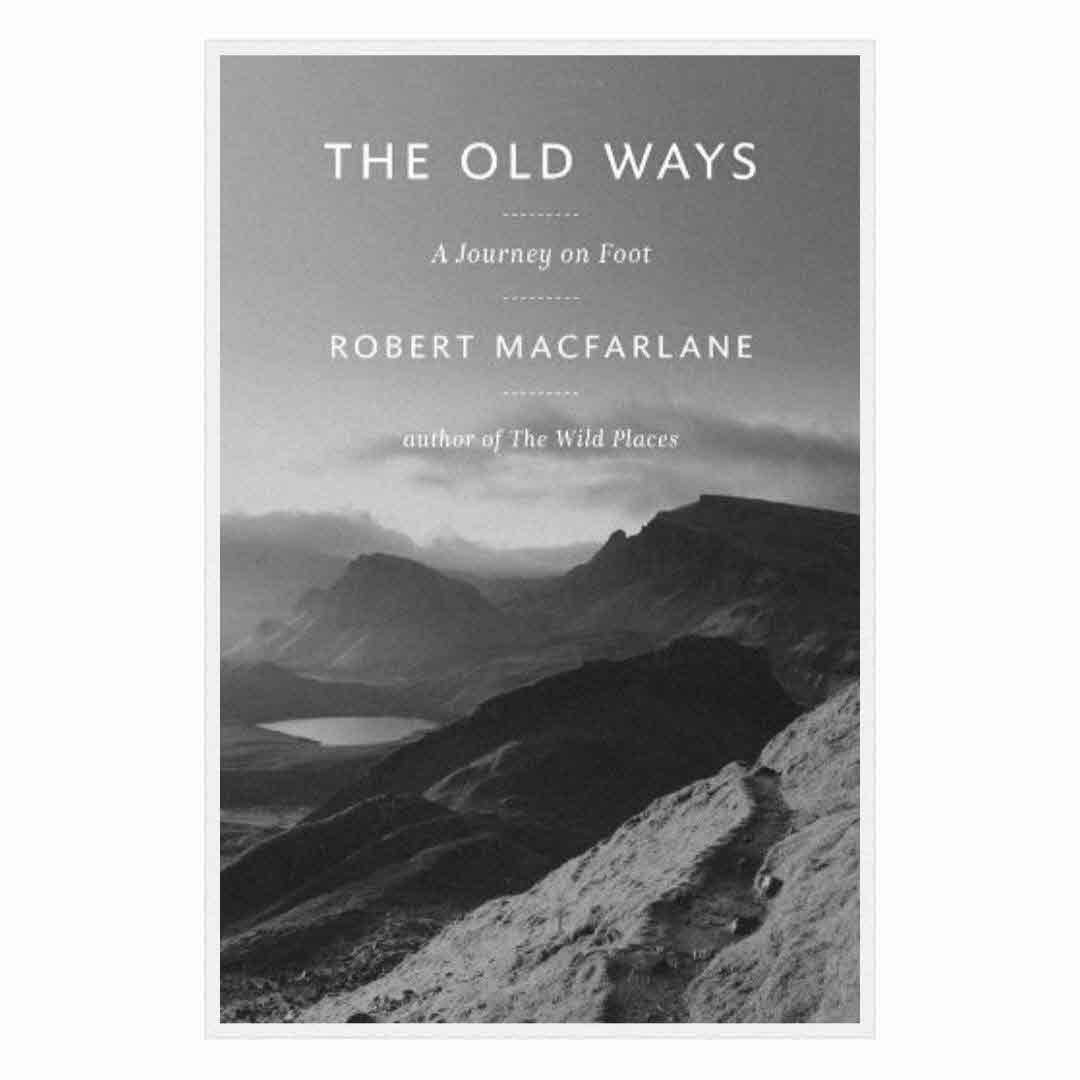
#HauntedShelf #BookScavengerHunt
#Graves #Landscape #Group #Weapon #Smoke #Boots
#BlackCatCrew @BookwormAHN

#HauntedShelf #BookScavengerHunt
#Graves #Landscape #Group #Weapon #Smoke #Boots
#BlackCatCrew @BookwormAHN

Well the version I read has a landscape. lol
#HauntedShelf #BlackCatCrew @bookwormAHN #ScavengetHunt #Landscape

This was a slow read but pretty enjoyable. It's definitely a little idealistic, but I don't say that as a bad thing, and the basic premise is that there are indigenous traditions of land management and agriculture in Wales that can contribute to biodiversity, carbon sequestration, water management, etc. It's less about language than I'd been led to expect, but it does discuss Welsh a fair bit too.
I'm not incredibly comfortable with defining “Welshness“ as being largely defined by language, owing to the suppression of the Welsh language by the English. Aaaand I think some people would be super uncomfortable with the fact that this book claims the term “indigenous“ for the Welsh (not wrong).
I'm with Glyn Jones for a definition of Welshness:
“To me, anyone can be a Welshman who chooses to be so and is prepared to take the consequences.“

Random book from our personal library.
2016 rating: ★★★★☆